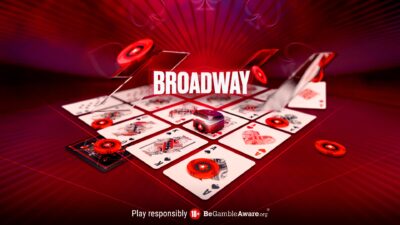

When that queen hit the river, Nakabo wailed a stream of Japanese. I had no idea what the words were, but I knew exactly what he was saying. He couldn’t believe that his tournament had come to an end after getting it all in on the flop against a four-outer.
“Can you believe it? I had aces and all he had was a gutshot!”
Nakabo slumped in his seat as the pot was pushed to his opponent. He then very reluctantly stood up and retired to the rail, where he wistfully stared at his former table for a solid five minutes. A friend came by to check on him, prompting another stream of Japanese and some pointing. Again, the words were unintelligible to me but again I knew that the sights, sounds and body language of a bad beat story in progress.
There are 37 different countries represented in this tournament. Listen closely at the tables, on the rail, and elsewhere on the gaming floor and you’ll hear Korean, Japanese, Chinese, English, Russian, German and a host of other languages being spoken. Each of those speakers brings with him or her unique cultural identities developed from a lifetime spent in his or her home country.
The language and culture of poker bridges all of that. It’s a shared culture where the actual language being spoken is largely irrelevant. A bad beat in Japanese is still a bad beat in English. The frustration that comes from dealing with a big stack on your left is the same whether you grew up in Monaco or Mongolia. In Brazil they say “Vamo!” when something good happens; in Macau it’s “Aiyah!” when something bad happens. Nobody needs to speak Portuguese or Mandarin to understand those sentiments.
I’ve traveled to five continents and fifteen countries on the international poker circuit. Poker may be an American game but whether I’m in a poker room in Sydney or Sao Paulo or Monte Carlo or Seoul, I’m always at home. The game of poker itself has no country. Or maybe the game is its own country, and we’re all citizens sharing the same culture and speaking the same language in different dialects.
Despite that shared citizenship, if you try to tell me a bad beat story at the media desk in any language, I’ll pretend not to speak that language.
Back to Top






